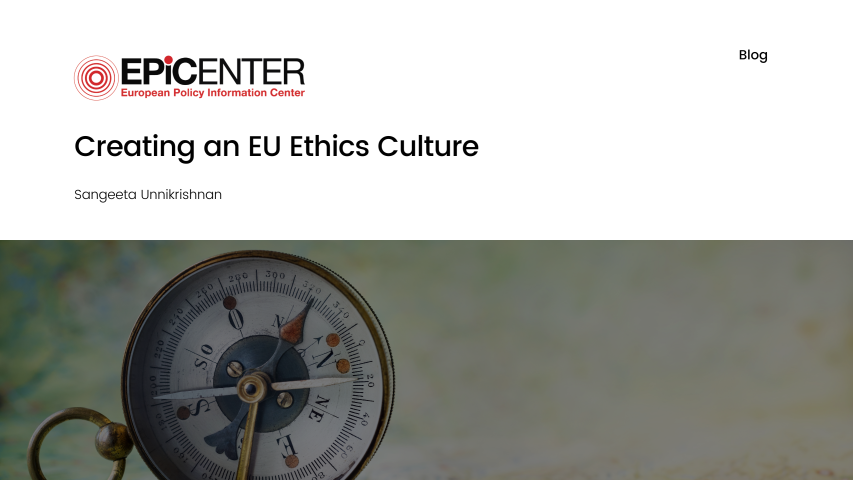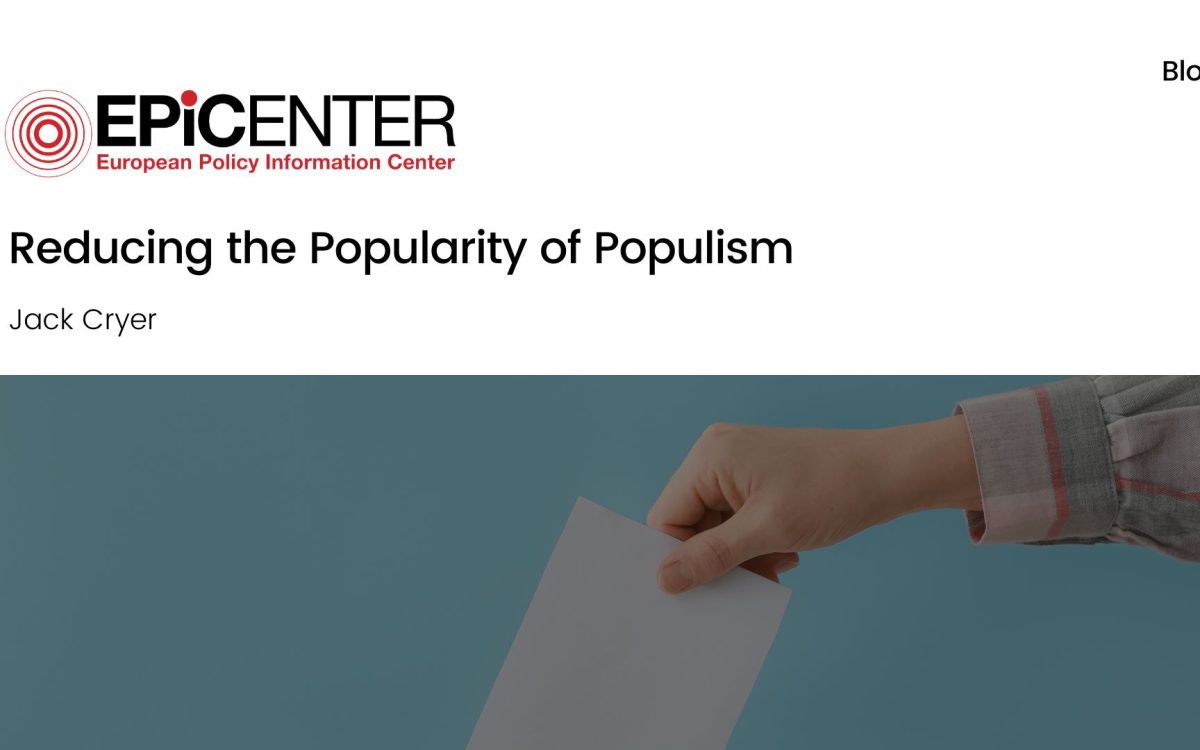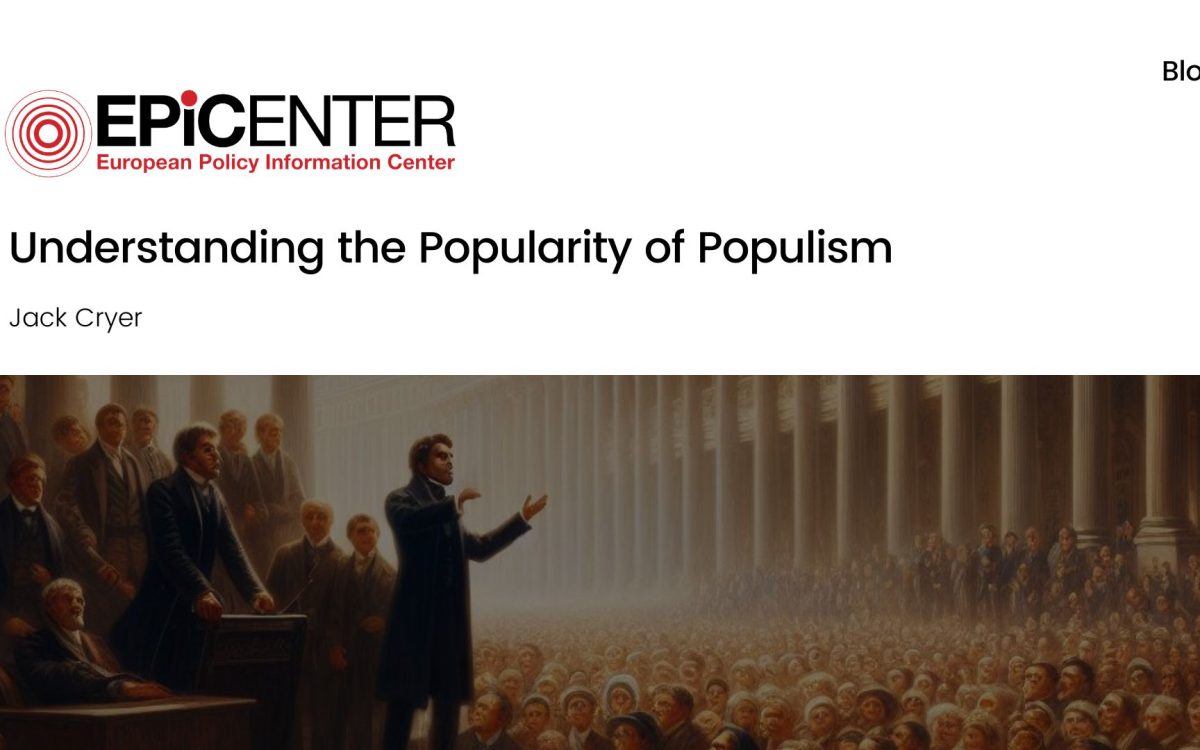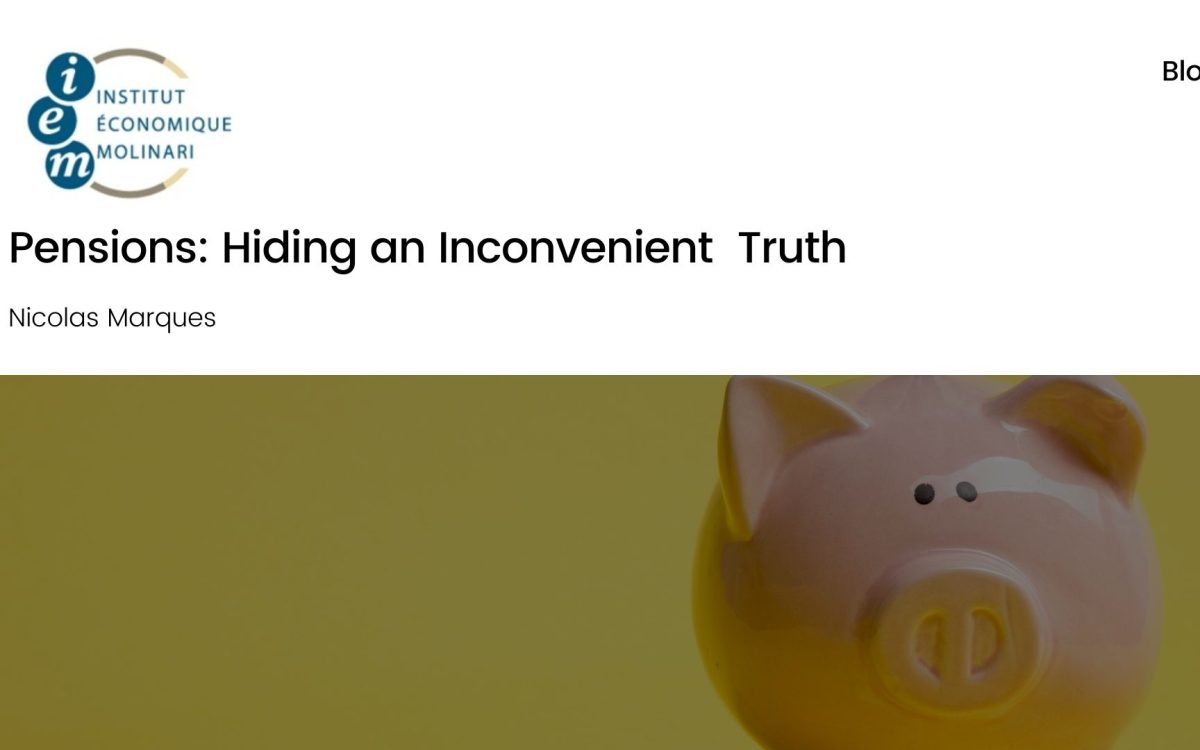Creating an EU Ethics Culture

Creating an EU Ethics Culture
Sangeeta Unnikrishnan // 25 July 2023
Transparency and accountability are vital pillars of democratic governance. However, the series of scandals that rocked the European Union over the last few years have illustrated the need for the reinforcement of these principles. Whether through Uber Files or Qatargate, numerous EU officials have faced allegations of unethical behaviour, money laundering, and corruption over the last few years. The verdict on the existing ethical guidelines is clear: they are insufficient in verifying compliance and penalising defiance.
Transparency International, a global anti-corruption NGO, has been flagging deficiencies in the EU’s ethics system for years. Various separate frameworks exist under EU law, and so definitions of concepts as central as ‘conflict of interest’ lack consensus. The European Ombudsman was tasked with investigating cases, but the power to punish ethical violations was left solely to the president. Over Parliament’s last term from 2014 to 2019, 24 members of the European Parliament (MEPs) were found to have breached the code of conduct, but none were formally sanctioned. These fragmented rules combined with lax enforcement and limited awareness inevitably lead to a systemic failing.
The mandate to create an independent ethics body predates the recent scandals, with European Commission President Ursula von der Leyen handing this task to Vera Jourová when she took office in 2019. After significant delays, the proposal was eventually adopted on 7 June 2023. The proposed body involves representatives from nine EU institutions and five independent experts, who will together create a common set of ethical standards for categories such as meeting disclosures and interest and asset declarations, to which their political appointees will be subject. Once these baseline rules are agreed upon, parties will be tasked with implementing them internally. The body’s lack of enforcement or investigative power has led to its characterisation as ‘toothless’, though the official response attributed these shortcomings to legal constraints. Though this limitation may have been inevitable, one which could be improved is the proposal’s current likelihood to create an unproductive lowest common denominator of standards. By granting the body additional power to develop further specific standards for each institution, this pitfall could be avoided.
Beyond its inherent weaknesses, the proposal also fails to address a key issue in the existing guidelines – sanctioning – by leaving the parliament president, or an equivalent respective authority, in charge of final decisions on penalties. This can be addressed by allowing the ethics body to recommend the action required, then utilising mechanisms found in precedents to allow a majority in the Plenary or College to make the final decision, with individual votes made public. A formal report on the body’s recommendations, along with explanations for any deviations made in the final decision, would also perhaps induce stringency. This suggestion would minimise potential for political bias and establish independent oversight and public accountability as key tools for addressing ethical issues within the EU.
Considering the legal and partisan constraints faced by the ethics body proposal, it appears unlikely that more robust legislation can succeed. In these circumstances, it is worth examining culture: as Ombudsman Emily O’Reilly recently said, a firmly entrenched ‘culture of integrity’ can sometimes fabricate the effects of elaborate legislation. The EU is not comparable to a national government in which politicians are held accountable by independent organisations and an attentive public. Much of the media’s impact is only felt within the Brussels bubble, as demonstrated by a recent survey, which showed that only 45% of EU citizens are even aware of when the next European elections will occur. In addition, due to the large number of NGOs funded at least in part by the Commission, there are few avenues for challenging questions to be posed and consequently less fear of bad behaviour being exposed.
Though Qatargate directed unprecedented media attention towards the EU’s ethical failings, the ethics body’s limited budget of €600,000 – less than half of the sum seized in the Qatargate raids – indicates that the issue is still not being prioritised. It also revealed how badly MEPs’ power and influence require scrutiny: leadership should embody positive values for an institution to ethically flourish, but instead, many resist efforts to improve transparency or even enforce existing rules. Attitude change is difficult to achieve, but if voters pay attention to this topic in the 2024 elections, it may be possible.
The current culture in the EU allows ethical violations to go easily unnoticed, through a lack of coherent guidelines along with an absence of channels to identify and condemn perpetrators. The ethics body marks an effort to modify this, as a base for inter-institutional co-operation that recognises a clear set of values – but it requires greater prioritisation and weightage, as well as commitment from MEPs, to be truly effective. The proposal includes a step in the direction of accountability, in publishing the ethical standards and institutions’ adherence to them. However, without independent oversight – and an engaged and critical audience – it appears unlikely that the ethical culture of the EU can undergo the drastic change needed.
Download or share this blog post
EPICENTER publications and contributions from our member think tanks are designed to promote the discussion of economic issues and the role of markets in solving economic and social problems. As with all EPICENTER publications, the views expressed here are those of the author and not EPICENTER or its member think tanks (which have no corporate view).



